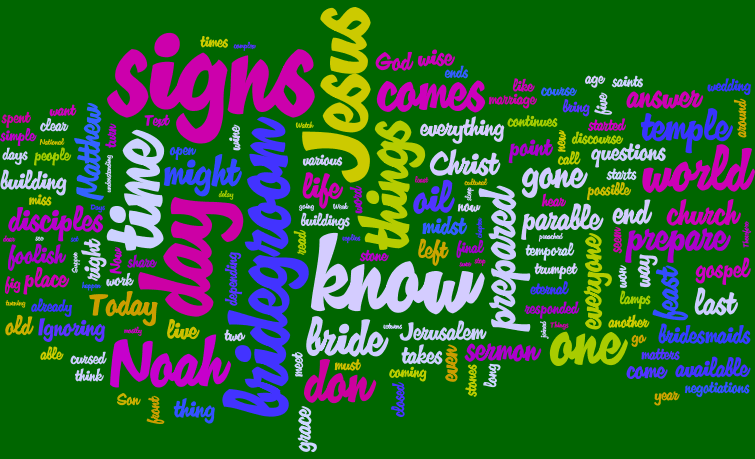
Biblical Text: Matthew 25:1-13
This parable – the 10 Virgins “all trimming their wicks” – is one that most modern Lutherans preachers hate I bet. At least if they are being honest about where their theology is at. I make a split at modern, because Luther himself had no trouble preaching its clear message. Its clear message, the clear message of all the end times sermons, is that sanctification is something that we are part of. The wedding feast? We don’t have anything to do with that. Jesus has paid the bride price and has prepared a place. Our justification is by grace alone in Christ alone. But Jesus consistently says “watch” or “prepare”. And the reason is that we can lose our salvation. In this sermon we can get so lost in the things temporal that we lose the things eternal. We become overcome with worldliness and forget to bring the oil. Because the one thing we know is that we don’t know when the Bridegroom comes. Making a quick trip to Wal-Mart won’t be an option. Have you lived the Christian life, or not? To many modern Lutheran ears that sounds like a betrayal of gospel. It isn’t. The betrayal is in not living it. In not preparing.
Recording note: the recording is an after the fact re-recording. Something happened with our recording system and the live version couldn’t be used.
Podcast: Play in new window | Download









